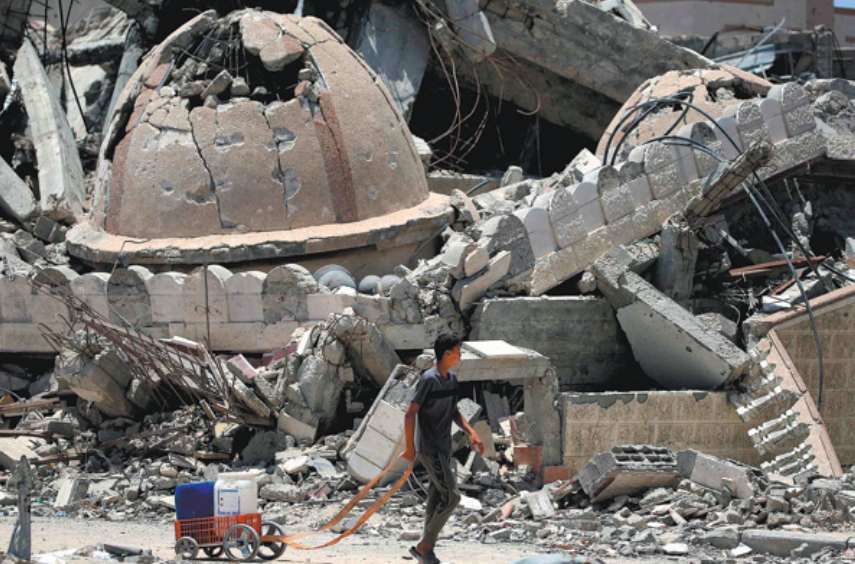G7 actions urged to end Israeli atrocities in Gaza


The Group of Seven nations is being urged to do more to end Israeli atrocities in Gaza as Tel Aviv has yet to publicly accept a US-backed United Nations Security Council resolution despite the bloc's claim that it welcomes Israel's acceptance of the proposal.
The Islamic Relief group urged the G7 countries Canada, France, Germany, Italy, Japan, the United Kingdom and the United States to end arms sales to states in which there "are serious risks of international law being violated, such as Israel's actions in Gaza".
Military spending was at "record levels" while humanitarian aid to help people affected by wars and disasters had been cut, even as more than 1 million Palestinians are starving, it said.
Israel's continued offensives are reported to have killed at least 37,337 Gazans, in response to Hamas' attack on Israel in October, in which about 1,200 people were killed.
Eight Israeli soldiers were killed in a blast in southern Gaza on Saturday, the military said.
In Rafah, witnesses reported clashes between militants and Israeli troops in the city's west and artillery fire toward a refugee camp in the city center.
Abdalfatah Asqool, an international law lecturer at the University of Palestine, told China Daily: "They announce a deal, which is originally an Israeli deal, and they ask Hamas only to say yes to the deal without any comments. This proves that the US is acting as a representative of Israel. They announced that Israel accepted the deal, but we did not hear it from the Israelis themselves.
"So it is better for the US to stop playing the two faces role, because this will make them keep losing on both the local and international level."
Abdul Wahed Jalal Nori, an analyst and lecturer in the Department of Fundamental and Inter-Disciplinary Studies at the International Islamic University Malaysia, told China Daily that what the G7 said at its summit was "insufficient and overly cautious". G7's reliance on US President Joe Biden's proposed deal "places too much responsibility on Hamas to accept terms without significant leverage or guarantees", he said.
"This is seen as somewhat one-sided, failing to adequately pressure Israel to make concessions necessary for peace, such as easing the blockade on Gaza or addressing settlement activities in the West Bank."
At the G7 summit in Apulia, Italy, from Thursday to Saturday, the bloc called on Hamas to accept and implement UN Security Council Resolution 2735 while reaffirming support to Israel and its "right to defend itself", according to a G7 communique published on Friday.
Though demanding an increase in humanitarian aid flow, the G7 said it wanted "Israel's security interests and safety for Palestinian civilians in Gaza assured".
However, the government of Israel has yet to publicly acknowledge or accept the proposals even though the US has given assurances that Tel Aviv has accepted the conditions.
Israel's Prime Minister Benjamin Netanyahu "faces significant pressure from various domestic political factions", Abdul Wahed said, and acknowledging international calls for a cease-fire or concessions to Hamas "might be seen as a sign of weakness or a betrayal of national security interests".
"This could erode political support within right-wing and conservative segments of the Israeli electorate, who favor a hard-line stance against Hamas and other Palestinian factions."
Though G7 leaders in their communique reiterated a commitment to a two-state solution, the outcomes "expressly show the double standards of the international community in dealing with the issues", said Asqool of the University of Palestine.
The G7 agreed on the right of Ukraine to resist but ignored the Palestinian right to defense against occupying forces and did little for the thousands of innocent Palestinian civilians killed after the Hamas attack in October, Asqool said.
Agencies contributed to this story.

































